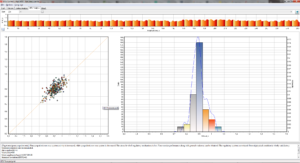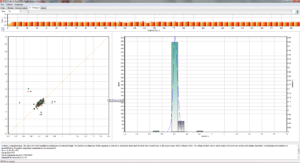Easy Way to Take Control of Your Health
"No one is too young or too old to learn good, healthy habits." (Chris M. Matsko, M.D. Family Medicine Physician)
Indeed. We become so focused on the tiny tasks as our work, money, wealth, success that we forget about everything that really matters. Yep, sure "the pursuit of happiness is a fundamental human right (under the Declaration of Independence of US)." Success, money, rewarding career or own bussiness is happiness, isn't it? No, it's not. I can prove it with one sentence.
"Health isn't everything, but without it, everything else is nothing." Thanks, Schopenhauer. You are god damn right!
Have you ever read about healthy leaving, taking control of your health, taking responsibility for your own life? Have you ever think of it?
All the existing healthy leaving advices share many common features, e.g., physical activity, healthy diet and healthy weight, non-smoking, refusal of excessive use of alcohol, and the most interesting one - no stress. Is a stress-free life possible? Maybe, it's not. But it should be. Why? Because stress is the main enemy and silent killer for healthy heart and healthy body. No bad habit would do such harm to human being as emotional strain and exhaustion.
Day-to-day stresses cause damage on both physical and emotional levels even without obvious symptoms. But stress is needed for normal growth, we feel happiness when we work hard to achieve our goals. How to keep the balance? It's easy. Control your stress. Listen to your heart, when it's saying to you "Enough, keep calm, have a rest or ... vacation :-)".
But we can't know our stress level...Or can we? WE CAN!
 One of the most reliable indicators of stress is heart rate variability (HRV). HRV is the variation in the time interval between one heartbeat and
One of the most reliable indicators of stress is heart rate variability (HRV). HRV is the variation in the time interval between one heartbeat and the next. Your heart rate is not ideally regular. In fact, it changes from beat to beat. The more it changes, the more your HRV is. Our emotions, thoughts, mood and state of health are tightly connected to the functioning of our nervous system. The sympathetic nervous system and the parasympathetic nervous system control of cardiac rhythm. It was wellknown that stress, excitement, intensive physical activity may temporarily accelerate our heart rate (sympathetic nervous system is active), while meditating or taking slow, deep breaths, resting may help to slow heart rate (parasympathetic nervous system is active). But not only heart rate really matters. If your body is under too much stress your heart rate will be stable (even if heart rate is low). Put simply, low heart rate variability is bad. It's very very bad. It's the sign that it's enought for you. Stop looking for happiness in the same place you are loosing your health. Too much variability is not good either. It can be arrhythmias or nervous system chaos.
the next. Your heart rate is not ideally regular. In fact, it changes from beat to beat. The more it changes, the more your HRV is. Our emotions, thoughts, mood and state of health are tightly connected to the functioning of our nervous system. The sympathetic nervous system and the parasympathetic nervous system control of cardiac rhythm. It was wellknown that stress, excitement, intensive physical activity may temporarily accelerate our heart rate (sympathetic nervous system is active), while meditating or taking slow, deep breaths, resting may help to slow heart rate (parasympathetic nervous system is active). But not only heart rate really matters. If your body is under too much stress your heart rate will be stable (even if heart rate is low). Put simply, low heart rate variability is bad. It's very very bad. It's the sign that it's enought for you. Stop looking for happiness in the same place you are loosing your health. Too much variability is not good either. It can be arrhythmias or nervous system chaos.
 Let's look at an ECG (right side). Heart rate changes quite a lot. The software ECG Control can translate ECG beats into HRV levels.
Let's look at an ECG (right side). Heart rate changes quite a lot. The software ECG Control can translate ECG beats into HRV levels.  Let's see the result (left side, clickable). HRV levels are normal. Stress index is 45. A person experiences low levels of stress. It's actually my ECG. And I'm ok, thank you! 😉
Let's see the result (left side, clickable). HRV levels are normal. Stress index is 45. A person experiences low levels of stress. It's actually my ECG. And I'm ok, thank you! 😉
Let's look at another one (right side). Heart rate barely changes. HRV levels are very low. Stress index is more than 250. A person experiences greater stress. In that case, pay attention to your health! You'd better have a rest and talk with your doctor about which screenings you should be getting.
Heart Rate Variability has a well-established role as a biomarker of various disorders, such as cardiovascular diseases, neurological and endocrine disorders, and even cancer! And it is so easy to control!
The level of HRV can be known from your 5 minutes ECG record. For sure, you should probably have an ECG if you have heart risk factors or symptoms of heart disease, but home ECG can be useful for everyone even for stress control.
Your body is talking to you. Are you listening?
And the video about stress control




